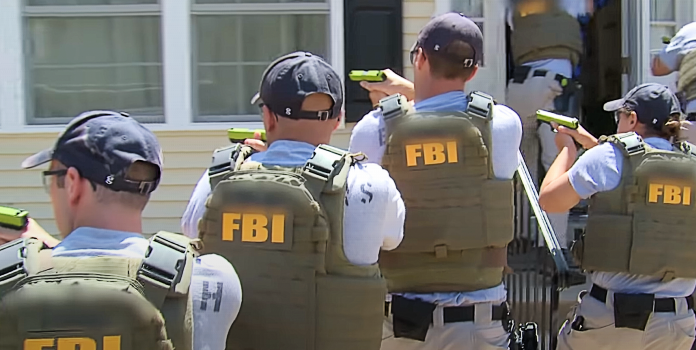(Joshua Paladino, Headline USA) A recently uncovered internal FBI audit from 2019 shows that the domestic spy agency committed hundreds of violations regarding “sensitive investigative matters,” American Greatness reported.
The FBI auditors surveyed 353 delicate cases, which related to politics, media and religion, and found that agents violated laws and internal policies 747 times in an 18-month period.
That translates into about two “compliance errors” for every sensitive case, according to the Washington Times, which first published the audit.
The auditors presented the full case breakdown: 191 cases were related to domestic elected officials, 43 to religious groups or prominent members, 32 to political organizations or individuals, 10 to domestic political candidates, 11 to the news media, and 66 to “other” sensitive matters.
The audit does not give a reason for the FBI’s widespread involvement in domestic political and religious affairs.
Most violations are about an agent’s failure to receive permission before opening an investigation, negligence in reporting an investigation’s progress, or decision to use investigative methods beyond the authorized scope.
The FBI said the violations were “related to approvals, notifications, and administrative matters.”
Sen. Chuck Grassley, R-Iowa, the ranking member on the Judiciary Committee, called for an independent investigation into the FBI’s abuses.
Audit shows agents violated FBI rules 747 times in only 18 months while conducting ‘sensitive investigations’ like of political candidates&religious groups Durbin& I demanding answers +inspector general investigation CANT TOLERATE ‘mistakes’ of FBI trampling constitutional rights
— ChuckGrassley (@ChuckGrassley) March 29, 2022
Cato Institute senior fellow Patrick Eddington uncovered the 2019 audit after he sued the federal government for access to these records.
Eddington said the audit shows that the FBI’s field offices got “off-the-chain” from their superiors and began investigations on their own terms.
“When they open investigations without authorization, to me, that’s about as radical as it gets,” he said.

